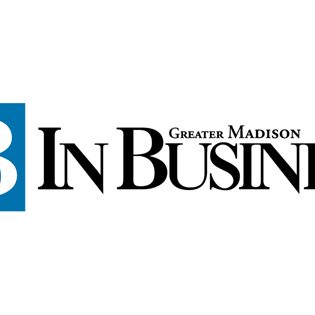The Wisconsin Technology Council would be among the Wisconsin partners in The Bloch, one of three Illinois “tech hubs” proposals described below:
Innovate Illinois today announced its support for two transformative projects seeking federal Economic Development Administration (EDA) Tech Hub Funding located in Illinois. These visionary projects — The Bloch, a proposal aimed at developing the future quantum information science and engineering industry, and the iFAB: Illinois Fermentation and Agriculture Biomanufacturing Tech Hub—represent a pivotal opportunity for the state of Illinois to strengthen its position as a leading hub for innovation, economic growth, and technological advancement.
“Innovate Illinois was designed to build a robust coalition that would pool its collective expertise to advance groundbreaking technologies, and with its support of The Bloch and iFAB, Illinois is doing just that,” said Governor JB Pritzker. “Illinois is on the cutting edge of bioprocessing and quantum computing. Our continued leadership in these spaces will help address global challenges and drive economic growth.”
The federal EDA Tech Hub Program is an economic development initiative designed to drive regional technology advancement across the United States. In this first phase, the EDA will designate at least 20 Tech Hubs across the country and will separately award approximately $15 million in strategy development grants to accelerate the development of future Tech Hubs. Only Consortia are eligible to apply for the grant program, which includes groups such as academia, private sector representatives, local or state government, and federal labs, among others.
Innovate Illinois is a public-private coalition that was formed to drive the coordinated and robust effort in securing unprecedented levels of federal funding made available by landmark legislation including the Bipartisan Infrastructure Bill, the CHIPS and Science Act and the Inflation Reduction Act. Securing more federal funding for key technologies will propel the state to attract more companies and investors and grow Illinois’ already vibrant ecosystem.
The Bloch
Illinois is a leader in quantum information science and engineering research and has four of the ten National Quantum Initiative centers and institutes, funded through the National Sciences Foundation and Department of Energy. The proposed Illinois EDA Tech Hub, the Bloch, would build on this leadership and expand efforts to drive the quantum economy.
The Chicago Quantum Exchange (CQE) – the largest university-led quantum initiative in the country – stands at the forefront of quantum information science and engineering (QISE). A catalyst for research activity across its member and partner institutions, the CQE is based at the University of Chicago and is
anchored by the U.S. Department of Energy’s Argonne National Laboratory and Fermi National Accelerator Laboratory, the University of Illinois Urbana-Champaign, the University of Wisconsin-Madison, and Northwestern University. With the potential quantum market projected to reach $106 billion by 2040, securing EDA Tech Hub funding for CQE will propel Illinois into a position of national economic leadership in the QISE space.
The state has already secured $390 million in federal funding in 2020-2021, demonstrating Illinois’ commitment to quantum research. QISE has the potential to revolutionize industries such as finance, healthcare, logistics, and cybersecurity. Quantum technologies that are being developed could help solve complex optimization problems, accelerate drug discovery, enhance supply chain management, and strengthen data encryption. By investing in quantum research, Illinois will play a pivotal role in driving technological advancements and global innovation.
iFAB: Illinois Fermentation and Agriculture Biomanufacturing Tech Hub
As a leader in biomanufacturing, Illinois is well-suited to grow the sector through its support of iFAB: Illinois Fermentation and Agriculture Biomanufacturing Tech Hub, led by the Integrated Bioprocessing Research Laboratory (IBRL) at the University of Illinois Urbana-Champaign in partnership with Archer Daniels Midland Company, Primient, and Clarkson Grain Company. This visionary proposal seeks to revolutionize synthetic biology and fermentation processing, driving economic growth and fostering innovation for a sustainable future.
Synthetic biology, a burgeoning scientific discipline, focuses on engineering organisms with enhanced capabilities to tackle practical challenges, including pollution remediation and improved resource utilization. Precision fermentation processing, central to synthetic biology, harnesses cutting-edge technology to convert plant-based feedstocks into high-value commodities, such as food ingredients, fuels, and performance materials. The precision fermentation industry is projected to reach $11.8 billion by 2028, with the potential to generate one million jobs by 2030, presenting an extraordinary opportunity for the US to optimize its resources and enhance global competitiveness.





